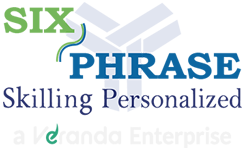How and where do I start learning C programming?

Do you have a great interest in learning C Programming, but don’t know where to start? Then, this article is for you.
There are certainly various online tutorial videos available for beginners and centres offering complete C programming courses. If you’re new to coding, then it is a better idea to begin with C which is one of the foundational programming languages developed in the 70s.
However, it is still powerful and learns more complex languages with the knowledge acquired. C language is frequently referred to as a middle-level language as it blends the functionalism of assembly languages with the features of high-level languages. It allows manipulation of the bits, bytes and addresses that give the programmer a control over the behaviour of their application and more direct access to underlying hardware mechanics. Here, we compiled how to learn C programming for beginners. Let’s discuss.
C Programming: Define
It is a high-level, procedural, general-purpose programming language which is used in developing games, software applications and system programming. Here, is a quick introduction to C programming language,
- Dennis M. Ritchie created the C language in 1972 at Bell Phone Laboratories.
- This language, which was initially created for UNIX operating system programming, is strong and it is renowned for its effectiveness and simplicity.
- Since it provides you with a fundamental understanding of programming, it is the ideal option for you to begin with.
Things you need to know before coding language C:
It is possible to learn C as your first computer programming language, but there might be better options. Certain programmers believe that learning other languages is less difficult and could help them in learning C. It could be useful to have some fundamental knowledge before getting started.
- Coding: C makes use of a basic text-based tool that can be accessed through an application or a browser.
- Compiler: This program translates programming languages into machine languages that are understood by computers. It will also be useful to have a basic understanding of coding syntax.
- Debugger: With complex programs, the code may consist of thousands of lines. This tool will assist you in locating errors in the code.
Strategies for learning C programming:
If you need to develop software, then you need a C programming language that collaborates with the computer’s hardware. Here are some of the common strategies and terms you need to learn to become a pro in coding.
- Acquire knowledge of variable types. Recognize the kind of data you are dealing with, such as whether it is a character or an integer. Since data types are the foundation of C, mastering this feature is essential to writing well-performing programs.
- Recognize the operators. Symbols known as operators instruct the compiler program on what to do. An operator is, for instance, the + sign, but not all operators are as clear-cut. Both logic operations and arithmetic functions use operators.
- Utilize common libraries. The program installs the libraries’ variables, macros, and useful data when it needs them. For instance, a library might have resources on foreign exchange. Programmers can utilize a minimum of fifteen standard libraries in their projects. It is possible to build custom libraries with extra features and capabilities.
- Error messages are not provided in C, in contrast to other languages. Rather, the software crashes or exhibits strange behaviour. Should the code not function as intended, you will need to identify the issue.
- A debugger is an application designed to find errors in your code. Debuggers help programmers write better code.
Tips to learn C programming by yourself:
Nowadays, various online tutorials and centres are offering C programming full courses which are easier for non-technical students to learn. But with consistent efforts and practice, you can become a pro. Here are basic tips to begin with.
- When you are first learning to program, you should try to look at and try to see every model. Before reading the content, look over the code example and try to figure out what they did. Although it doesn’t always work, it did force us to look at the example carefully and often made the programs more understandable.
- Run it after compiling it. Make sure it performs as you expected. You may look at the example code when you’re reading a programming manual, tutorial, or book; it’s very easy. Writing the code will force you to pay attention to the smaller details of the language’s sentence structure, such as those semicolons that seem to follow every line.
- The more troubleshooting techniques you master, the easier programming will be. The first step in doing this is learning how to use an IDE or tool known as a debugger, which allows you to explore your code. You can step through a section of code line by line with a debugger.
- Look for additional resources. There is lots of information about programming on the internet, and different people find that some explanations work better than others. While some people may need pictures, others may not.
Hope, this guide is useful. If you’re still struggling with understanding the concepts, connect with our Six Phrase experts offering technical training to undergraduates.



